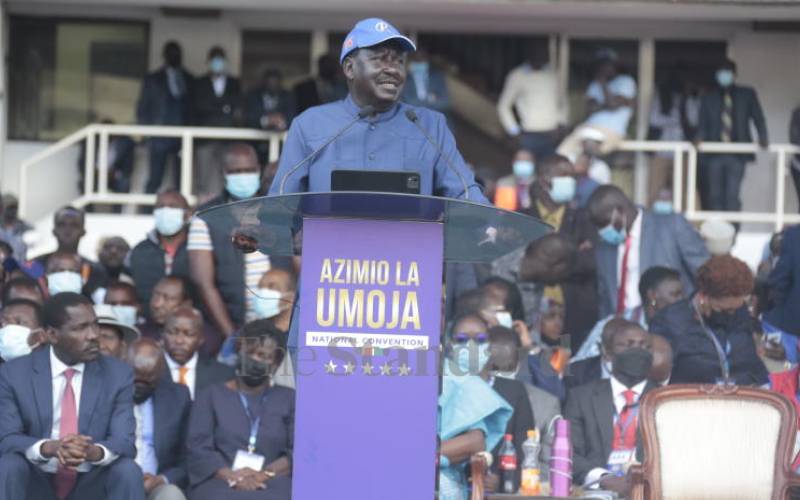
Raila Odinga has what it takes to lead Kenya but must be patient. [File, Standard]
ODM leader Raila Odinga has been characterised as an enigmatic political operative. He is defined in different ways by different people, depending on their interests. At the height of the power struggle in Ford Kenya, in 1994-96, after the demise of his father, Jaramogi Oginga Odinga, his nemesis, Michael Wamalwa Kijana, characterised him as a deep thinker and an unpredictable individual. He could not be understood superficially, Wamalwa said, “When you have agreed with Raila, check also what Amollo thinks.”